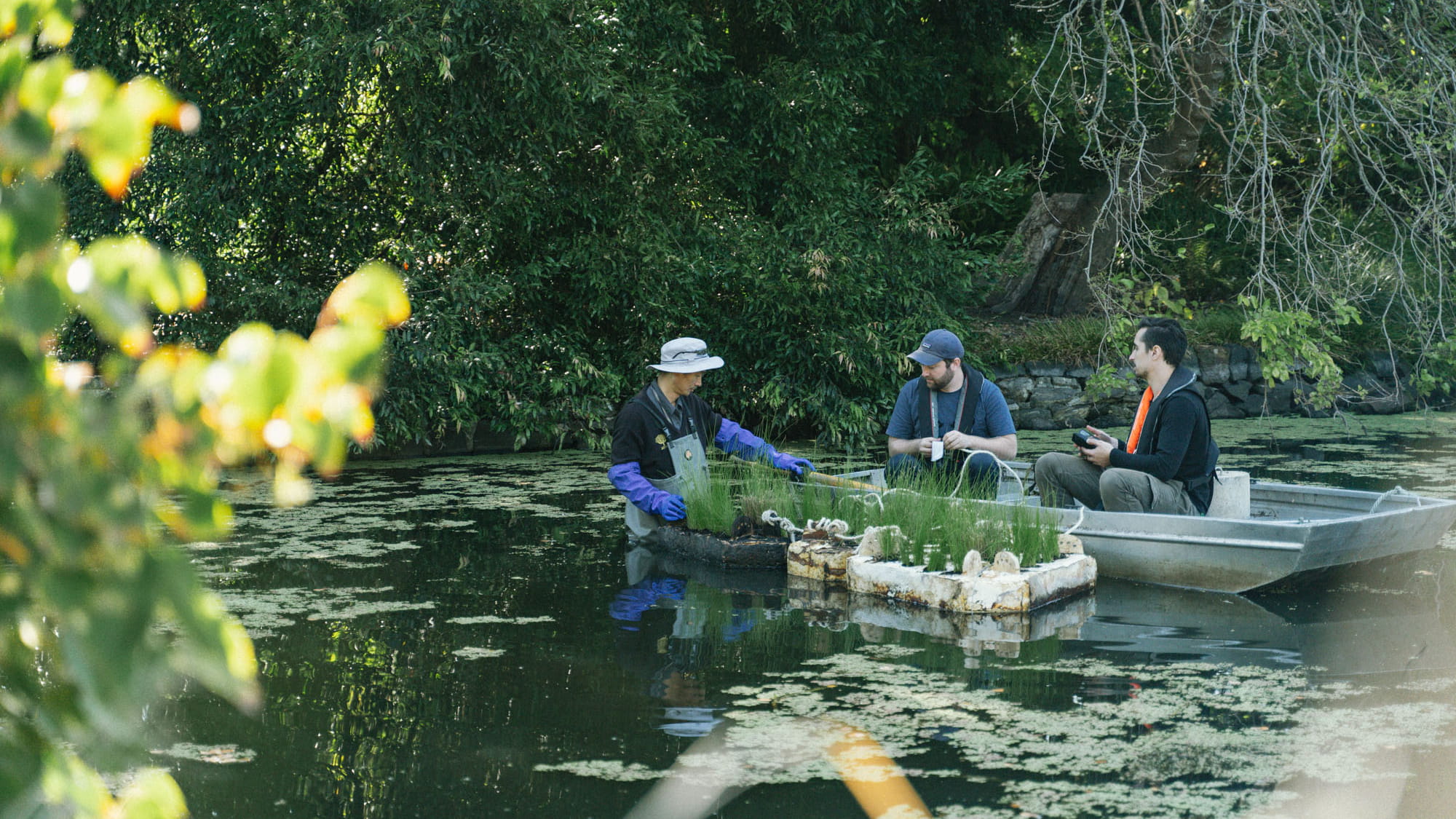 Trish Sunga
Australasia Press Office,Sydney
Trish Sunga
Australasia Press Office,Sydney
The first plastic-free, floating wetlands have been recognised for design excellence at the Australian 2021 Good Design Awards.
Winning the Gold Award for Design Research, the prototypes were created entirely of biodegradable materials to clean waterways naturally and create healthy environments.
The collaboration by Arup, Swinburne University of Technology and studio edwards used mycelium (roots of fungi) as the primary material, instead of plastic which is used traditionally but degrades and causes contamination and waste problems.
By contrast, because ‘mushi’ (pronounced moo-shi) is made of organic matter, it can be returned to the soil and transformed into nutrients and fed back to the natural ecosystem.
Arup Research Manager Alessandro Liuti said winning the award is a boost for mushi’s continued development and use, potentially on a larger scale.

